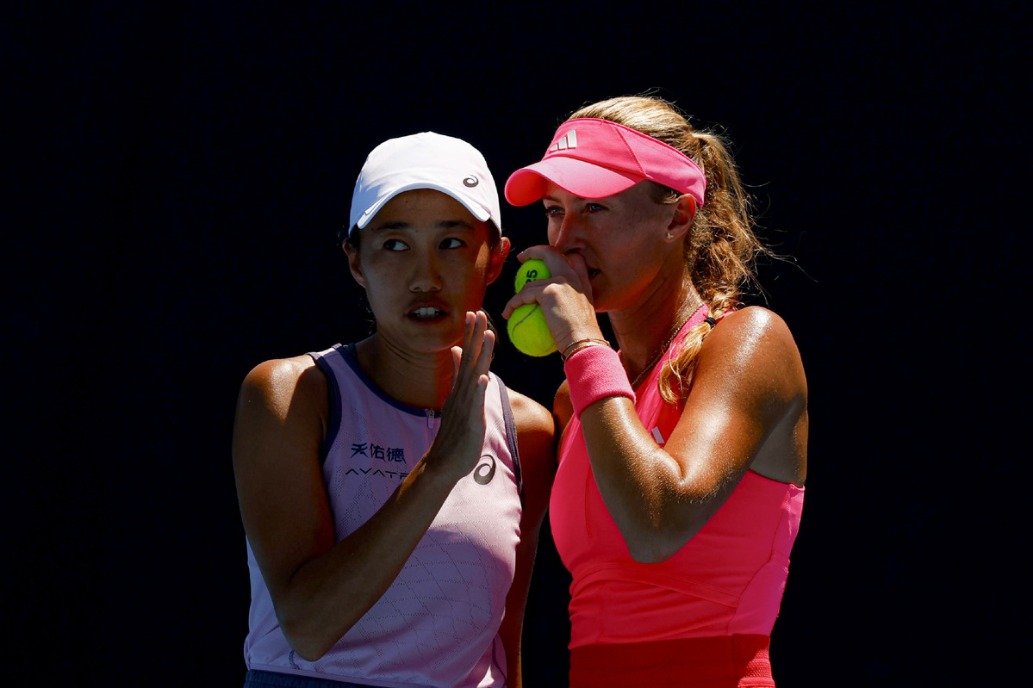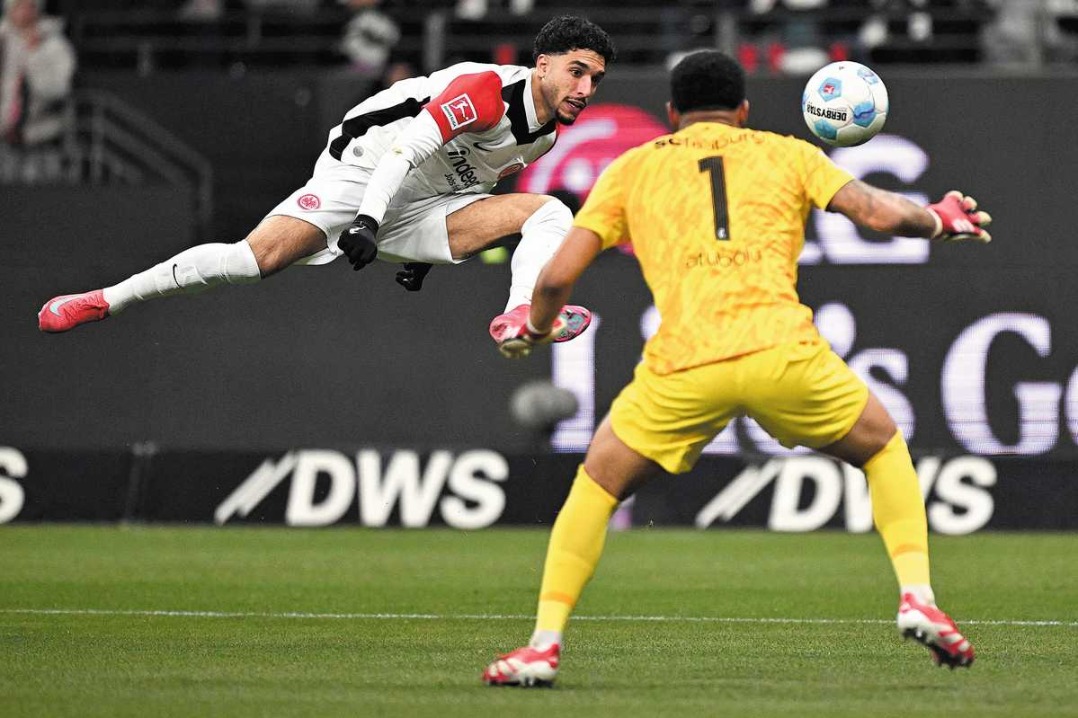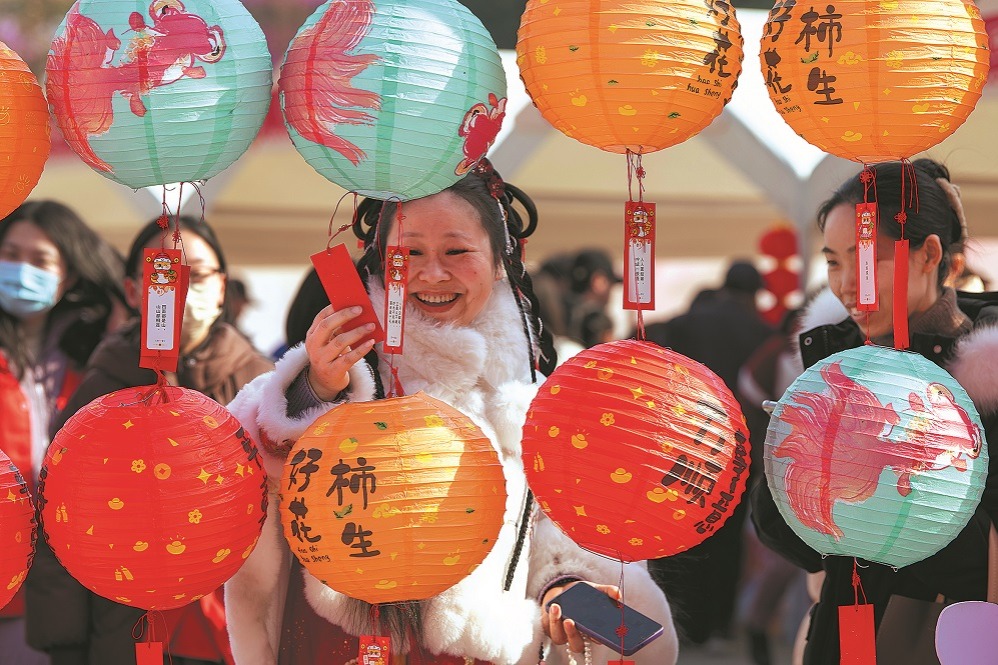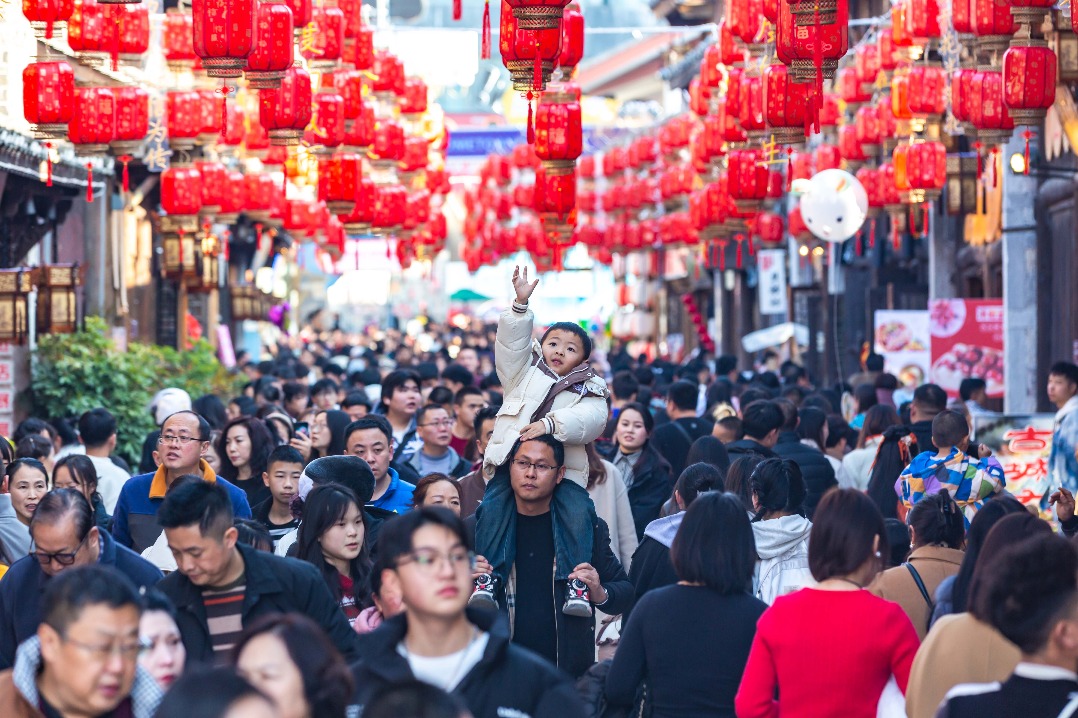Chinese gamers warming rapidly to esports

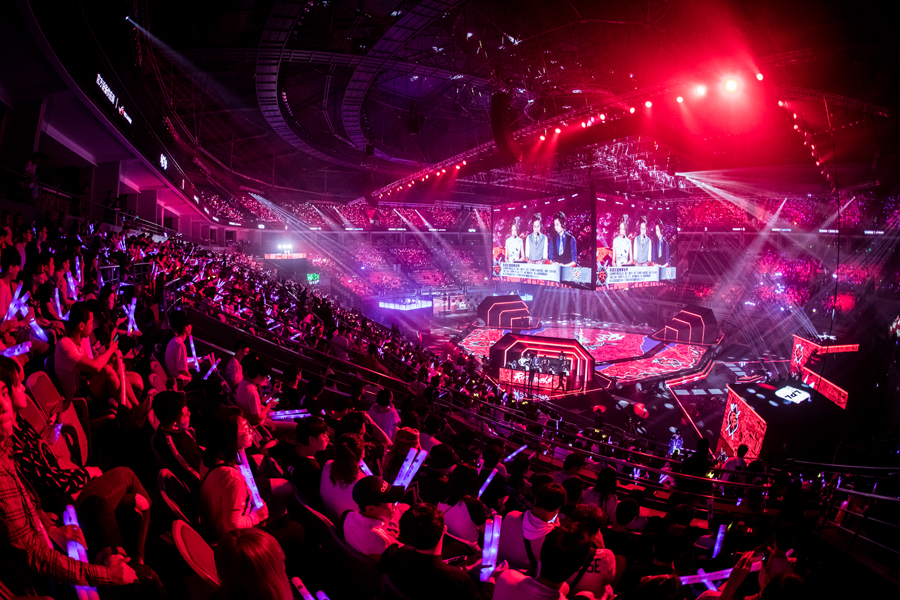
Formal recognition also advances with inclusion as a demonstration activity at the Asian Games.
The roar generated by more than 20,000 fans at the Dalian Sports Center Stadium and the cheers of 18,000 at Shanghai's Mercedes-Benz Arena on the same day stand as firm evidence of the progress of esports development in China.
The fans were attending two major events on July 8 that showcased the dawning of a new era for the country's esports players.
In Dalian, Liaoning province, the event was the League of Legends Rift Rivals, a regional esports tournament based on one of the world's most popular PC games, LOL. In Shanghai, it was the Spring Season Final of the 2018 King Pro League, an esports competition based on Tencent's mobile game hit King of Glory.
Esports involve multiplayer video games played competitively by professional gamers.
Staged soon after Chinese esports team Royal Never Give Up was crowned world champion at the LOL Mid-Season Invitational in Paris in May, the enthusiasm shown on July 8 once again demonstrated the strength of China's growing esports and booming gaming industry.
In Dalian, the League of Legends Pro League, China's top professional league for LOL, which consists of Chinese clubs RNG, EDward Gaming, Rogue Warriors and Invictus Gaming, claimed the regional championship by defeating the league from South Korea 3-2.
In Shanghai, two of China's most competitive King of Glory clubs, EDward Gaming and Hero, competed against each other to find the country's best. The Hero team, which made it to the season's final for the first time, won the championship 4-1.
No matter the winner, the two events showed just how popular esports has become in China, attracting a total of 38,000 spectators. Still, this figure is just a tiny fraction of the country's esports fans.
According to the League of Legends Pro League, live broadcasts of its games were viewed more than 7 billion times by Chinese fans in the first half of this year, with the total time they spent watching games reaching 1.38 billion hours.
To allow fans a closer connection with their gaming idols, the league also introduced a home-and-away system for its clubs, similar to traditional sports leagues such as the National Basketball Association in North America.
The average demand for seats at the five home stadiums has reached more than 90 percent, and the league is working to select home venues for all the clubs, prompting interest from many Chinese cities willing to provide preferential policies to support these clubs.
The situation is also promising for the King Pro League. King of Glory has attracted 200 million registered users since its launch in 2015, and live broadcasts from the league, which was formed in 2016, were watched more than 10.3 billion times last year with total prize money of 6.85 million yuan ($1 million).
The broadcasts and other content from the league's Spring Season this year have been viewed more than 4 billion times, a 42 percent year-on-year rise, with daily viewership of league games reaching 34 million.
China's esports market value reached 5 billion yuan last year and this will grow to 8.48 billion yuan this year, according to the 2018 China E-sports Development Report.
This was published by Tencent E-sports, Penguin Intelligence and China Electronic Athletics magazine at the Global E-sports Leaders Summit and Tencent E-sports Annual Conference in Shanghai last month.
By 2020, the market value is expected to exceed 20 billion yuan. Last year, there were 250 million Chinese gamers and this figure is expected to rise to 300 million by 2020.
North America and China are the two major pillars of the global esports industry, accounting for 37 percent and 15 percent of the market respectively, according to the report.
In 2016, China's esports income growth rate hit 56 percent, 4 percent higher than the global average, and the industry has reacted accordingly.
"We have been paying close attention to the development of esports in our country," said Li Jian, a Ministry of Culture and Tourism official, at the Global E-sports Leaders Summit.
"In recent years, the market scale, market value, users and tournament prize money of Chinese esports have all been skyrocketing, attracting the attention of the government and other interested parties."
However, the booming market faces a number of challenges.
"Many local governments have different preferential policies, but there are no unified plans to support esports' development," Li said. "Also, the industry chain of our country's esports is incomplete and the long-term profit model is immature. More important, the industry needs to be properly regulated."
The increasing prize money could also endanger the industry's healthy development.
Wei Jizhong, Olympic Council of Asia honorary president, said: "The rising prize money could be a problem. If the prize money is too high, the whole sport could become too profit-driven, which would not be good news."
Most Popular
- Clinical Zhang, Mladenovic win through to third round in doubles at Australian Open
- NBA tips off 14th Chinese New Year celebration
- Noisy racket on 'party court' sees match moved
- Yamal drives dominant Barcelona past Betis
- 'Sensational' Arsenal back in title race: Arteta
- Coach: Garnacho can have bright future
















